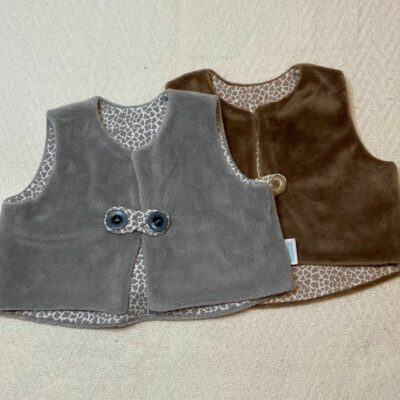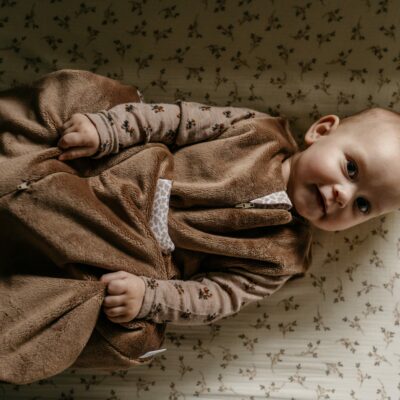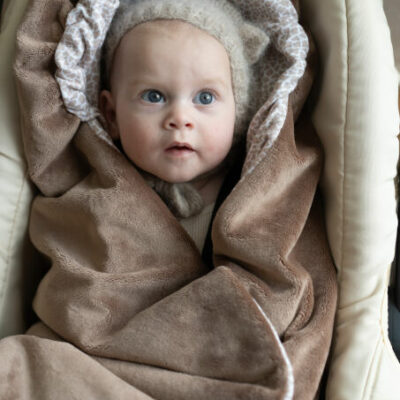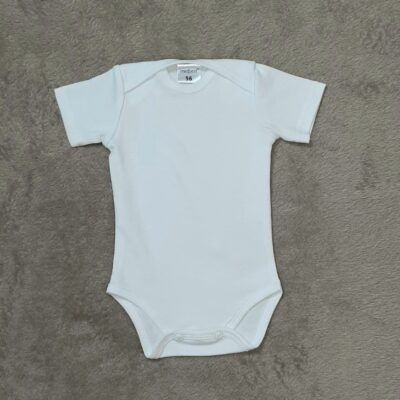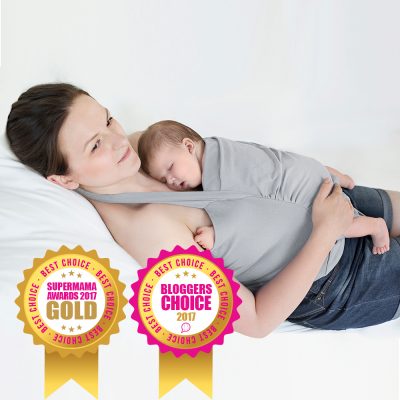Holding the baby against your bare chest, skin to skin – we call it Kangaroo Mother Care, since it involves breastfeeding. Nonetheless, the father is the natural second choice for a Kangaroo Care provider. In certain situations, he becomes indispensable.
Close to every other child in Poland is born through a C-section: 47% of children born in 2015 were delivered this way. (Not a statistic to be proud of – the percentage is 16 for Scandinavia and 25 for Europe overall) Practice shows that C-section robs the mother off the chance to hold her baby skin to skin. Less than 40% of mothers who delivered their children through a C-section took advantage of KMC, as opposed to 90% of mother who had a natural birth. The contact was also much shorter – in 85% of cases it did not exceed 30 minutes, while the recommended duration is 2 hours.
This is when the father makes a grand entrance! He may take the newborn into his arms right after birth and provide kangaroo care while the mother undergoes surgical procedures, until her anaesthesia wears of and she is ready to hold the baby. From the point of view of the baby, a man’s chest may not be as comfortable as the woman’s, but associated benefits are just the same. The baby can hear the parent’s heartbeat, feel his breath and the warmth of his skin. The calming effect is the same. So is the chance of adopting the parental microbiota – which is extremely important for children born through a C-section. A baby born through the birthing canal gets to collect the mother’s microbiota from those regions. A baby taken straight from the uterus is deprived of the possibility. Skin to skin contact with the father compensates for it to a degree. Until the mother may hold the baby and feed it for the first time, the father will suffice.
More often than not, C-sections are not planned in advance. The decision is made when the mother is already in labour. The father is thus shocked by having to step in as the first Kangaroo Care provider. Whether it becomes a memorable experience or a stressful one depends largely on the medical staff’s support. The key factor is how well he is prepared for the job, if he knows what skin to skin contact is about and how important it is for the baby, if he’s ever worn a kangaroo care shirt. Support is not to be overestimated here. Fathers are more anxious than mothers when it comes to interacting with the baby. They are scared of hurting the infant, of holding him or her too tight. Knowing that something stabilizes the baby’s position against their chest helps them relax and cherish the moment, get the feel of the baby. Thus, they jump head-first into fatherhood, without setting deadlines or rules – I will hold the baby when he’s older, I will bathe her when she’s at least two weeks old. A strong and very important bond begins to form.
Naturally, there are no reasons why fathers shouldn’t participate in Kangaroo Care, even if their children were born without complications. However, they rarely do. Kangaroo Care has nothing to do with simple holding, rocking or changing the diaper. It’s a precisely described technique that brings healthy psychological effects to all parties involved. There are many situations in which the father should step in for the mother, such as when she’s sick or suffering from depression. It’s not about forcing anybody to do anything, but creating equal chances. To a newborn, the mother – especially one who breastfeeds – is absolutely special, unique and irreplaceable. During skin to skin contact with the father, when the tiny heart of the infant begins to synchronize with the man’s, a different kind of relationship is formed. A very important relationship for both parties involved. To the baby, the feeling of safety is no less important than the milk supply. To the father, knowing he did not fade into the background once the baby was born, that he did not become a third wheel, but somebody much more important than before, is sure to melt his heart.
+ 48 66 88 400 58

